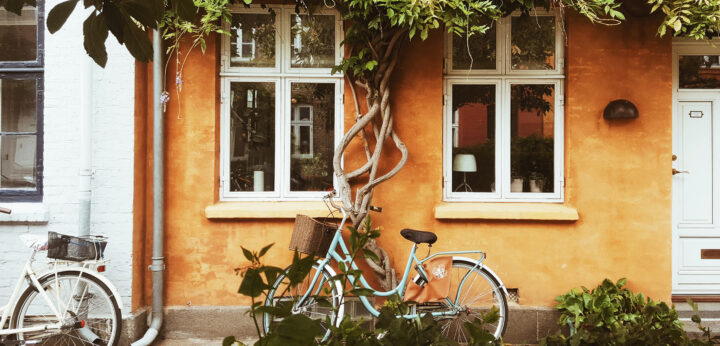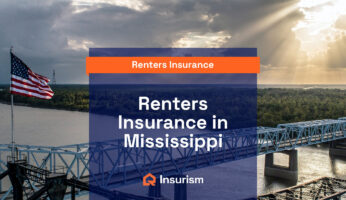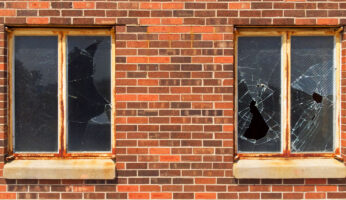Table of Contents
- What is the difference between homeowners insurance and renters insurance?
- Do I need renters insurance or homeowners insurance?
- Renters insurance vs. homeowners insurance: differences in coverage
- Renters insurance vs. homeowners insurance: differences in costs
- Can you have both homeowners insurance and renters insurance?
- Do I need homeowners insurance or landlord insurance for my rental property?
What is the difference between homeowners insurance and renters insurance?
Renters insurance and homeowners insurance are very similar. Among other types of coverage, both provide personal property coverage (meaning your provider will reimburse you if something damages your property) and personal liability coverage (meaning they’ll pay your legal expenses if somebody sues you).
There are two differences between these types of insurance:
- Renters insurance is meant for tenants, whereas homeowners insurance is meant for people who own the home they live in.
- Homeowners insurance covers both the things inside your home and the building that you live in, e.g. the walls, roof, floor, etc. In contrast, renters insurance only covers your possessions, not the actual building.
Because homeowners insurance has to cover the structure that you live in, it’s much more expensive than renters insurance. Other than those differences, the two types of insurance are basically identical.
Do I need renters insurance or homeowners insurance?
To figure out whether you need renters or homeowners insurance, just answer a simple question — do you own or rent your home?
Homeowners insurance is for those who own their property, while renters insurance is for tenants who rent. It’s as simple as that.
When should you get homeowners insurance?
You should get homeowners insurance any time that you buy a home, provided that you intend to live in it yourself instead of renting it out to other people. In fact, many lenders require you to purchase homeowners insurance when you get a mortgage.
Note that homeowners insurance is different from landlord insurance, even though they’re also similar. If you’re a property owner debating which one you need, skip to the end of the article and we’ll help you out!
When should you get renters insurance?
If you’re a tenant, i.e. you rent your home from a landlord, you should get renters insurance. Renters insurance isn’t required by law, but many landlords themselves require it, and even if they don’t, being insured is still a good idea.
The average price of renters insurance is very low (approximately $20 per month, which makes it one of the cheapest types of insurance), and it has the potential to save you from financial disaster. For more information, read our article explaining why you need renters insurance.
Renters insurance vs. homeowners insurance: differences in coverage
Renters and homeowners insurance provide similar coverage in many ways, although there are a few key differences.
Coverage differences
Like we mentioned earlier, homeowners insurance covers your personal property as well as the structure of the home or building you own. If something damages the walls, windows, roof, etc, your insurance company will reimburse you for the damage under your dwelling coverage.
On the other hand, if you rent your home, your insurance doesn’t need to cover your building. That’s because it technically belongs to someone else — your landlord.
As a tenant, you’re not financially responsible for damage to your building, so your insurance doesn’t have to cover it. Maintaining the building is your landlord’s responsibility, and their own insurance policy will cover it. (Bear this in mind if your landlord ever tries to get you to pay for damage to your home.)
Coverage similarities
Renters and homeowners insurance provide very similar coverage in most other respects. Both cover property damage, personal and medical liability, guest medical bills, and additional living expenses.
What homeowners and renters insurance policies both cover
Personal property: If your things are lost or damaged because of a covered peril, your insurance company will write you a check to cover your expenses. The most common perils covered by renters and homeowners insurance include:
- Fire
- Vandalism
- Hail
- Lightning
- Wind damage
- Burst pipes
- Frozen pipes
- Many types of water damage
- Mold caused by another covered peril
- Theft
Personal liability: Both types of insurance will cover your legal bills if you damage someone else’s property or accidentally injure them and they decide to take you to court.
Guest medical bills: If someone is injured or gets sick in your home, both policies will pay some of their medical bills, even if you weren’t responsible.
Loss-of-use coverage: Renters insurance and homeowners insurance will both pay for your living expenses (e.g. hotel bills) if a disaster (like a fire or leak) forces you to leave your home for a while. This includes hotel stay, meals, and transportation.
What homeowners and renters insurance don’t cover
Both homeowners and renters insurance policies are designed to protect you against sudden and unexpected events. However, there are some perils that neither policy will protect you against:
- Floods
- Earthquakes
- Pest infestations such as bed bugs
- Government seizures
- War and nuclear hazards
Additionally, neither type of policy covers pets (insurance companies don’t classify them as “personal property”), and they don’t cover cars or other motor vehicles.
They also won’t reimburse you for personal belongings that are broken due to everyday wear-and-tear or that you damage through your own negligence.
To get coverage for an event that your insurance would normally exclude, you can ask your insurance company whether they offer an addition to your policy (known in the insurance world as an endorsement or rider) for that event.
Renters insurance vs. homeowners insurance: coverage comparison
The table below shows the different types of coverage provided by both types of policy.
| Homeowner's personal property | Renter's personal property | Personal liability | Loss-of-use | Dwelling (floors, walls, etc) | |
|---|---|---|---|---|---|
| Renters insurance | Not covered | Covered | Covered | Covered | Not covered |
| Homeowners insurance | Covered | Not covered | Covered | Covered | Covered |
Renters insurance vs. homeowners insurance: differences in costs
Homeowners insurance is a lot more expensive than renters insurance. This is because homeowners insurance also covers the actual building that you live in. If your home were to be destroyed in a fire, your provider would have to pay a lot of money to repair or replace it.
The average price of a homeowners insurance policy is between $1,000 to $1,500 per year. The exact cost depends on a few factors, but the main one is the value of your home. Basically, the more valuable your property is, the more expensive your policy will be.
In contrast, renters insurance is one the cheapest kinds of insurance. The annual cost of a policy averages around $15–$20 per month, or $180–240 per year. Renters insurance is so cheap because it only covers your personal belongings, which probably cost about $15,000–$30,000 in total, whereas a typical house might be worth hundreds of thousands of dollars.
The cost of both policies depends on the city or state you live in. Living in a city with a high crime rate, for example, can make your premiums (the monthly cost of your policy) more expensive.
Can you have both homeowners insurance and renters insurance?
Yes, you can have both homeowners and renters insurance, although it’s rare for people to need both. It depends on how many properties you’re involved with.
If you’re just involved with one property — the one you live in — you can’t have both types of insurance. If you rent it, you’re only eligible for renters insurance, and if you own it, you’re only eligible for homeowners insurance.
On the other hand, if you have multiple homes, like a main residence that you rent and a small vacation home that you own, it might make sense to have both renters and homeowners insurance — one policy for each property.
Note that if you have multiple policies, you should get them from the same insurer. If you have policies from different insurers, some of your coverage will overlap (specifically your personal liability coverage, since that protects you everywhere, not just in the dwelling you took out the policy for). If you have to make a personal liability claim, each insurer might try to get you to file it with the other company, which can put you in a sticky legal situation.
Do I need homeowners insurance or landlord insurance for my rental property?
Homeowners insurance and landlord insurance are different types of policies. Contrary to what the name suggests, you don’t always have to have landlord insurance if you’re renting out your property — it can sometimes make sense to get homeowners insurance instead.
Which one is right for you depends on your circumstances.
When you need landlord insurance (aka rental property insurance)
If you plan to rent out your entire property for longer periods, you should get landlord insurance. It’s more expensive than homeowners insurance, but that’s because it offers you more protection when others are staying in your home.
Landlord insurance covers:
- Damage sustained by guests
- Liability for guests’ injuries
- Overuse of utilities
- Loss of rental income
- Identity theft
- Stolen property or vandalism
- Liquor liability
- Infestations
However, landlord insurance doesn’t cover your tenants’ belongings. To avoid disputes, many landlords require tenants to have renters insurance.
When you need homeowners insurance
An ordinary homeowners insurance policy won’t provide any of the special types of coverage listed above, but it might still be sufficient if you’re only renting out your property for a short period, or you want to rent out a single room in your house but keep living in the rest.
Make sure you ask your insurance provider if they have any restrictions on how you can use your homeowners insurance when you’re renting your home. Your policy might exclude events that happen in the rooms leased to your tenants.
Related Questions
- What is guest medical coverage in renters insurance?
- What is a sub-limit in renters insurance?
- Does renters insurance cover home-based businesses?
- Does renters insurance cover gold or silver bullion?
- What does "dependent in the care of" mean in renters insurance?
- Does State Farm renters insurance cover hotel stays?






